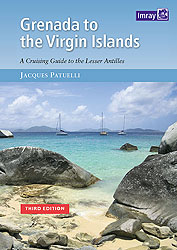| |
|

Like lots of other islands, Antigua was discovered by Columbus in 1493. It got its name from the church of Santa Maria la Antigua in Seville. Immediately abandoned by the Spanish because it was waterless, it was occupied by the English in 1632. It was only ever Frenchoccupied for one brief year (1666–7), but after the Treaty of Breda (1667) Antigua became definitively English. Three centuries of constant English presence have made the island a very British place. Thanks to its natural havens, of which the best known is English Harbour, Antigua became the stronghold of the English Leeward Isles Squadron. From this den, made impregnable by numerous fortifications (for example Fort Berkeley in English Harbour), the ships of Admiral Rodney, and from 1784 the great Horatio Nelson, could easily control the whole Antilles. Accordingly Antigua became one of the major British naval assets in the West Indies.

|
|
|
|
Despite frequent droughts, by the end of the 17th century the island was cleared for sugar cane plantations by the efforts of the British colonists (amongst them the well-known Christopher Codrington in 1684). The plantations required the  import of slaves from Africa and from that point on the island became ethnically divided. The decline of the monoculture and the abolition of slavery by the British in 1834 led to the land being broken up into smallholdings. Today the majority of Antiguans own their own small plot of land. Antigua became an associate state of the Commonwealth in 1967 and gained full independence in 1981. import of slaves from Africa and from that point on the island became ethnically divided. The decline of the monoculture and the abolition of slavery by the British in 1834 led to the land being broken up into smallholdings. Today the majority of Antiguans own their own small plot of land. Antigua became an associate state of the Commonwealth in 1967 and gained full independence in 1981. 
The sugar cane industry has now collapsed because of the extremely competitive international market. The only natural resources left to the island are small-scale cotton growing and fishing. As these industries also decline, the small state’s fragile economy is turning to tourism for support.
|
|
|









